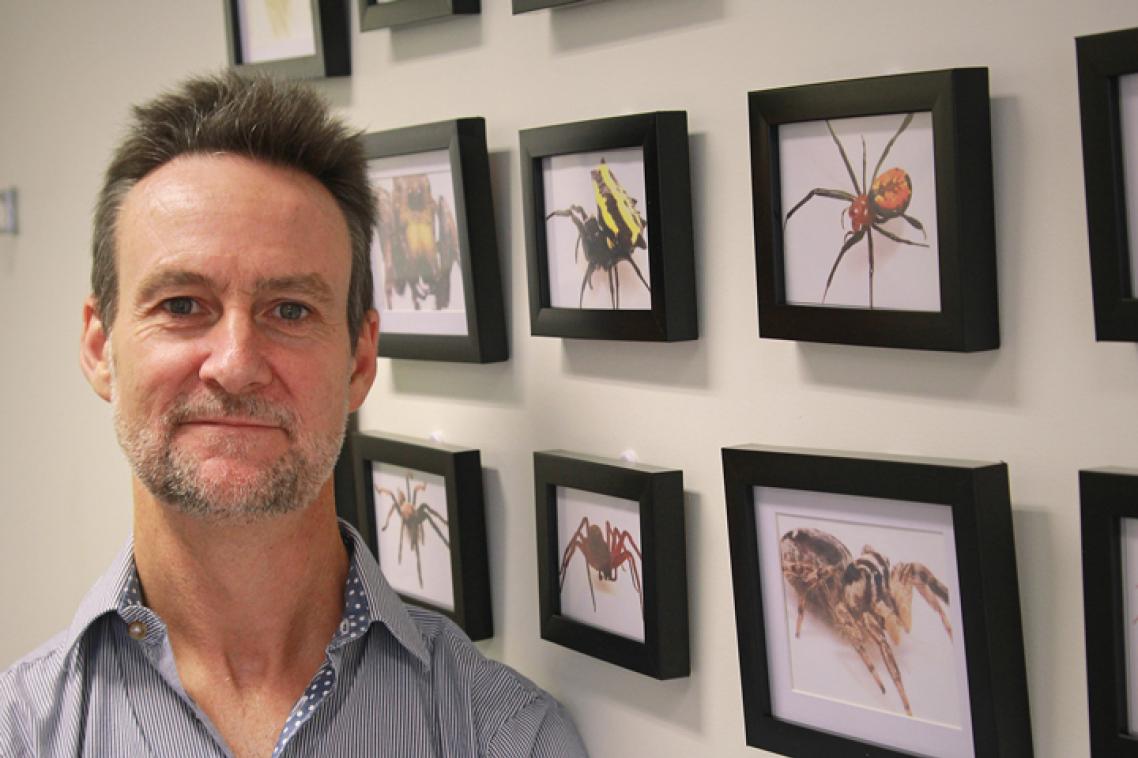Desert bush spider could help develop new drugs and insecticides

A toxin from the desert bush spider is helping researchers understand more about human and insect biology, which could lead to new treatments for health conditions and bee-friendly insecticides.
Scientists from The University of Queensland and Princeton University have used the potent insecticidal toxin—Dc1a—to investigate the molecular structure of sodium channels, which play important roles in the nervous system of humans and insects.
Professor Glenn King from UQ’s Institute for Molecular Bioscience (IMB) said to design better drugs and insecticides, you needed to know how to turn sodium channels on and off at the atomic level.
“Humans have nine sodium channels, each with different functions – for example, one type plays a central role in the perception of pain, another is essential to the function of the skeletal muscles we use for movement, and a third channel is used by the nerves that control our heart rhythm,” he said.
“If you design a drug to target one sodium channel to block pain, you have to ensure it won’t hit the others and cause paralysis or heart failure.
“And when designing insecticides, it’s critical that chemicals that disrupt sodium channels in pest insects don’t affect those found in humans or ecologically important insects such as bees.”
Professor King and PhD student Yan Jiang showed that Dc1a toxin binds to the on-off switch of an insect sodium channel, with the UQ and Princeton University researchers able to solve a high-resolution structure of the channel-toxin complex using cryo-electron microscopy.
“I think the most exciting part of this discovery is how Dc1a binds to the voltage sensor region—the on-off-switch of the sodium channel—as these regions are slightly different in each sodium channel,” Professor King said.
“By targeting the voltage sensor as opposed to the pore of the channel, you can potentially make a drug or insecticide that’s very selective.”
Professor King said the discovery provides a foundation for designing ecofriendly insecticides that will kill pest insects but won’t harm bees, humans or pets.
There is also scope for designing drugs that selectively target certain human sodium channels, which could lead to new treatments for conditions such as chronic pain, epilepsy and heart arrhythmia.
The research was published in Science (DOI: 10.1126/science.aau2596) and funded by organisations included the Australian Research Council and National Health and Medical Research Council.
Media: IMB Communications, communications@imb.uq.edu.au, 0418 575 247 or 07 3346 2134.
Related articles

Decades of surveys show whale migration shift

Should you consent to your doctor using an AI scribe? Here’s what you should know.
Media contact
UQ Communications
communications@uq.edu.au
+61 429 056 139
